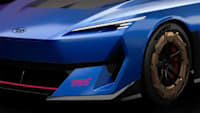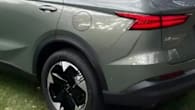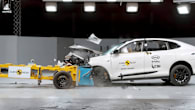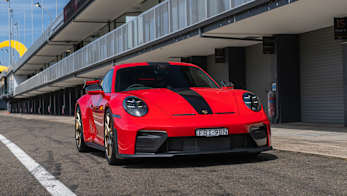Speaking to Australian media in Japan, Mitsubishi's General Manager of EV Powertrain Engineering Takashi Shirakawa explained why Mitsubishi thinks plug-in hybrid tech is the best solution for the mid-term future, while admitting that it will ultimately remain a niche technology.
He explained that Mitsubishi's global strategy was to "optimise" CO2 controls, and that, importantly, plug-in hybrids were more CO2 efficient based on a lifecycle assessment when compared to combustion, hybrid or battery electric vehicles.
To illustrate his point, Shirakawa shared slides which showed that over 110,000km PHEVs actually emitted less CO2 when manufacturing is included compared to either an EV or a combustion car.
-
Ralliart rebirth - and not just sticker packs! Mitsubishi will re-enter the performance arena with dedicated sub-brand, but will Triton, Outlander or Pajero Sport get a sporty makeover?
-
Mitsubishi wants to sell Australia's cheapest electric car - but here's what might be holding it back from undercutting the MG ZS EV and BYD Atto 3
-
Can an electric Mitsubishi Triton stick it to the Toyota HiLux and Ford Ranger? 2024 new-generation ute ready to go EV, but don't expect a plug-in hybrid anytime soon
While he said battery electric technology is more suited to microcars, like the kei-class of vehicle sold in Japan, mid-size SUVs like the Outlander were far more carbon efficient as a plug-in hybrid.
"The problem is the size of the battery," Shirakawa explained. "Outlander, as an EV, would need a 90kWh battery.
"Total CO2 is worse for two hybrids and one EV than three plug-in hybrids if you split the same 60kWh of batteries across those three vehicles."
The accompanying slide suggests the carbon output, when manufacturing is factored in, is 99g/km for the three PHEVs (over the 110,000km distance) compared to 200g/km for two hybrids and an EV.
.jpg)
"If we're going to use these limited resources to build batteries, we should use it in the most efficient way possible," Shirakawa said.
Mitsubishi claims its math points to plug-in hybrid technology remaining more carbon efficient at least until 2040. This, however, will depend on where the vehicle is sold, as each country's power grid has a different amount of carbon per kilowatt hour (kWh).
"In Europe, BEVs are better for CO2 because there is a lot of nuclear and green power, but in countries with mid-level power mix, like 300g/kWh like Japan, plug-in hybrids are better," Shirakawa said.
"HEVs are out-of-date in Europe, but we can create a new market for this kind of vehicle in South East Asia."
.jpg)
But Shirakawa admits that there are issues with plug-in hybrid technology, primarily that the consumer isn't really too fussed whether it's more carbon efficient or not.
"The customer doesn't care about carbon neutrality," he said. "They understand global warming, but maybe not how personal transport affects it.
"Even then, they don't consider it their responsibility.
"We can understand the frustration. 20 per cent of customers just want a battery electric. EV owners get freedom from the gas station; it's an annoying activity, it's not fun. The EV customer understands they can mostly charge up at home."
Shirakawa said the European market had created a false economy for plug-ins, based on government incentives to corporations for putting such vehicles on their fleet.
.jpg)
"These customers don't charge a plug-in," he said. "They get a gas card from the company, but if they charge up, they do it at home and have to pay for it themselves. The private customer is completely different. They actually charge their PHEVs, [so] in Europe this company car system is flawed [for combatting emissions]."
To that end, he admitted that PHEVs will remain a niche for those who understand them, but that suits Mitsubishi's outlook to stand out from the crowd.
"In the future PHEV won't play a major role. We are trying to stand out in a niche market until 2050. Some customers need and understand plug-in hybrid tech, but most OEMs aren't prioritising it. If we focus here we might be able to attract some buyers," Shirakawa said.
.jpg)
"EV will be more popular in the long term, but [right now] there are problems with charging.
"Our customers love technology. They talk with our salespeople; they know about plug-in hybrids. They have a strong opinion, and we grab that feedback and take it on board."
Mitsubishi is aiming to reduce its emissions by 40 per cent from 2010 levels by 2030 and says it can have a 50 per cent EV sales mix by that time. It earmarks future developments into more affordable batteries from China, as well as solid state battery technology currently being worked on by its Nissan alliance partner as a major contributor for reducing the cost of battery electrics.










.jpg)

.jpg)
.jpg)
.jpg)

.jpg)


.jpg)
.jpg)


.jpg)
.jpg)



.jpg)

